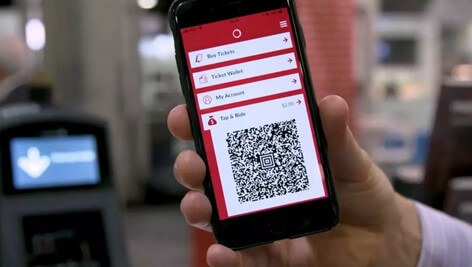No matter what online ticketing service you use, one of the major ticketing decisions to consider is pricing your tickets. How you price your tickets when selling them online for festivals, concerts, on other types of entertainment events is key to maximizing attendance and income. Your objective is to align your ticket prices with the perceived value of them in the minds of consumers. It’s not an easy task, but it is the key to driving conversion rates and achieving your financial goals for the event.
Online Ticketing Service: Types of Ticket Pricing Strategies
When deciding how to price your next live entertainment event, you will need to decide which of the 3 main ticket pricing strategies to use. Selecting the right one for your event will help you get the most out of ticket sales for your event. These three main pricing strategies are called
Most entertainment events use fixed or variable pricing for ticketing. However, dynamic pricing is now becoming more and more common with live event tickets sold by an online ticketing service.
Fixed or Static Ticket Pricing
Fixed ticket pricing or static ticket pricing is one of the most common ticket pricing strategies that is used by the entertainment industry. Fixed ticket pricing is when the price of your event’s tickets stays the same and do not change with time. So, from the time the tickets go on sale to the start of the show, the ticket pricing tiers remain the same.
For example, suppose you’re putting on a concert in July and the general admission tickets are priced at $45. With fixed pricing the general admission tickets sold by an online ticketing service would remain the same price until the show. This is the traditional model for selling tickets and it is the simplest and easiest ticketing strategy to use out of the 3 main options.
A fixed ticketing strategy is used by venues that want to keep things simple, often operating their own online ticketing service. The hardest part is determining the right ticketing price (price optimization) for each tier to maximize attendance and income. Its simplicity means that venues don’t need a lot of expertise to analyze data and sales as they happen. Without the need to adjust ticket prices venue operators, set it and forget it when it comes to online ticketing prices.
Operators using fixed online ticket pricing may set a door price higher for those purchasing at the venue, but that is their only concession to adjusting ticket prices. Some don’t even do that. While simple to implement, this ticketing strategy is the least effective in maximizing sales and generating profits. Most venues use it because they are not knowledgeable about ticketing strategies, or they don’t have the expertise to adjust ticket prices based on analytics while they are selling them.
Variable Ticket Pricing
Variable ticket pricing is another highly used ticketing strategy within the music industry. Any online ticketing service should provide the option for variable ticking pricing. It differs from static or fixed ticket pricing because there are different prices for the same ticket based on several criteria. Like fixed ticket pricing, variable ticket prices are set in advance before tickets are put on sale. Variable pricing is a ticketing strategy that changes the price of the ticket based on the day that you purchase the ticket, seat location, time of day, day or week or performance type. It does not change over time for any given day.
This model is used to maximize profits by charging more for a ticket on certain days/times that is known to be a peak time or peak date. Using variable pricing also sets an expectation with recurring ticket buyers that their favorite seats may have a different price tag on a different day of the week or for a different performance type. This could lead to a long-term benefit of providing an incentive for customers to purchase tickets early or become concert series subscribers.
Variable Pricing in the Entertainment Industry
Variable ticket pricing is often used with live entertainment events. With the help of simple data analytics, you can look at your past event ticketing sales and box office views and narrow down what day people are more likely to buy tickets. Then you can price your tickets accordingly based on past sales for similar events. We know that pricing is a great incentive for people to purchase during a certain timeframe. If the pricing doesn’t change from the event’s ticketing kickoff to the day of show, there is little incentive other than losing seats because of a sellout. Variable pricing is an important ticketing strategy that can easily help you to maximize your ticketing revenue for your next live event.
Variable ticket pricing is a great step up from fixed or static ticketing. As you will see, it’s also a middle ground between fixed and dynamic pricing strategies. It gives you a more flexible approach to pricing your tickets based on past sales than fixed pricing. While it isn’t as market driven as dynamic pricing, it’s a good way to increase your profits by using simple past data to change the prices of your tickets day to day during their sales period.
Dynamic Ticket Pricing Changes Ticket Pricing Based on Demand at Any Point in Time
Dynamic ticket pricing is a product of sales analytics and the increasing role of demand in setting price for products and services. Dynamic pricing changes prices for different customers. The price varies to optimize and maximize profit. It can be automated to adjust prices to offer the same product at different people at different times.
It’s by no means a new approach to pricing. Airlines, ride sharing companies, Amazon and other ecommerce businesses have been using it for years.
What exactly do we mean by dynamic pricing? Instead of using fixed or variable pricing like most events use, dynamic pricing bases prices on a lot of different factors. These factors may include who is buying the product, when the product is being bought, the competition’s prices, market supply and demand, and other external factors. The prices adjust automatically during the day or day to day according to the consumer’s demand. This is all based on research and data analytics, and its fully automated by artificial intelligence software for big businesses.
Dynamic Pricing in the Entertainment Industry
Today both the sports and music entertainment industry are using dynamic pricing strategies.
Instead of ticketing prices being published, the game or concert seating are published without pricing information. The prices can then by dynamically changed when you are ready to buy based many factors. Sports teams will price games and seats based on various factors like if the team has a winning streak going, if the weather is going to be good for that particular game, if a player has the potential to set some kind of record, or if the person buying the tickets are big fans of the team which can be seen through data analytics.
Ticketmaster, the biggest player in entertainment ticketing has been experimenting with dynamic pricing for about ten years and has had a fully mature dynamic ticketing pricing application for in place since 2018. The reason consumers are noticing it now is because artists can opt out of dynamic pricing for their events. Because artists lost so much revenue during the pandemic, fewer artists are opting out now, so ticket buyers are seeing the impact of dynamic pricing as they purchase tickets through Ticketmaster, AXS, and other online ticketing services.
Because Ticketmaster has exclusive ticketing contracts with most bigger venues, ticket buyers don’t have an alternative except on the secondary market to buy tickets to the concerts and artist they want to see.
Actually, dynamic pricing rationale is explained by Ticketmaster as capturing the revenue for venues and artists that is being taken by the secondary market. Secondary market sites buy up tickets using bots so they can sell them at a much higher prices on the secondary market at great profit. Dynamic pricing makes these those buying up tickets in great volume pay much higher prices shrinking the margin for those who sell tickets on the secondary market. It also means fans paying much higher pricing for tickets on the primary site as a result.
The dynamic pricing strategy is being used more and more because of the potential to maximize revenue that artists and venues can make from using this data driven technology approach to ticket pricing. Pricing is based on more in-depth data and analytics which can be beneficial because your pricing will be more precise as you can find the right price to charge a certain person to maximize profits. Used right, dynamic pricing can lower prices as well in “real time” to maximize attendees at your vent. After all, empty seats mean less food and beverage sales. Airlines learned a long time ago, that any ticket price is better than no tickets sold and an empty seat on a flight.
There are real potential drawbacks as well with using dynamic pricing as we are seeing with fan reaction to Ticketmaster pricing.
I think it will be interesting to see just how in-depth this strategy can go and if it will be used frequently in the coming years.
Conclusion
Whether you use fixed, variable or dynamic pricing, the strategy must be pricing optimized to assure the best financial income for your venue and event. Your objective is to sell out the event at the best average price you can get.
If you tend to sell a lot of physical tickets or you’re a smaller venue it might be a good idea to stick to fixed pricing. If you’re ready for that next step with your ticketing strategy, you should start implementing a variable pricing strategy based on demand at past events at your venue.
If you operate a large venue and have already implemented variable pricing and now want to try a more sophisticated pricing approach, then you can investigate dynamic pricing. You should proceed with great caution as you approach dynamic pricing though. There is a lot of downsides if not done right and transparently. In a future article we will look at dynamic pricing in detail with its pros and cons.
Each strategy serves a different purpose and it’s best to use the strategy that best benefits your venue or events.
Related Posts:
Online Ticketing Service: 7 Steps for Selling Tickets
Event Ticketing Strategy: 4 Tactics to Sell Out






